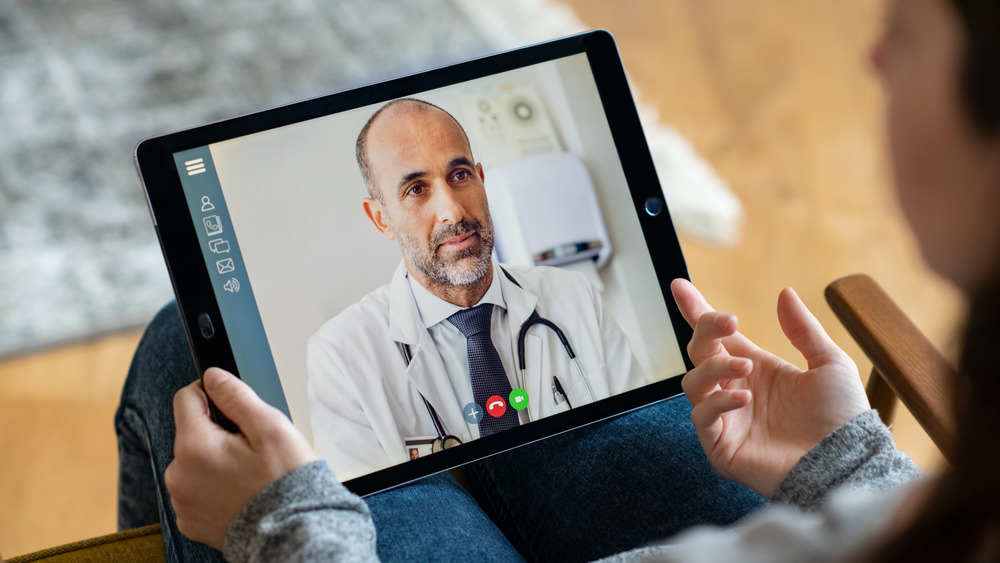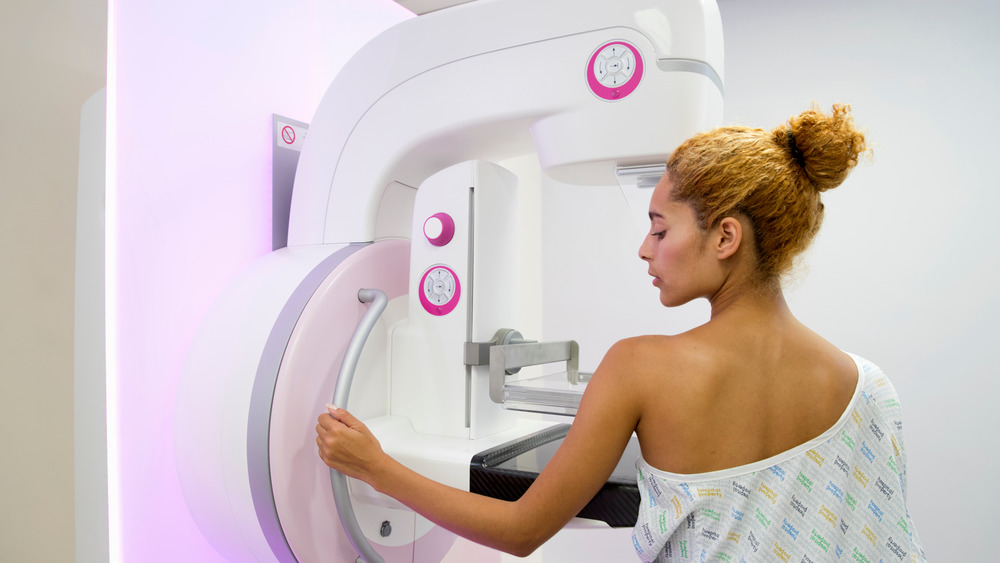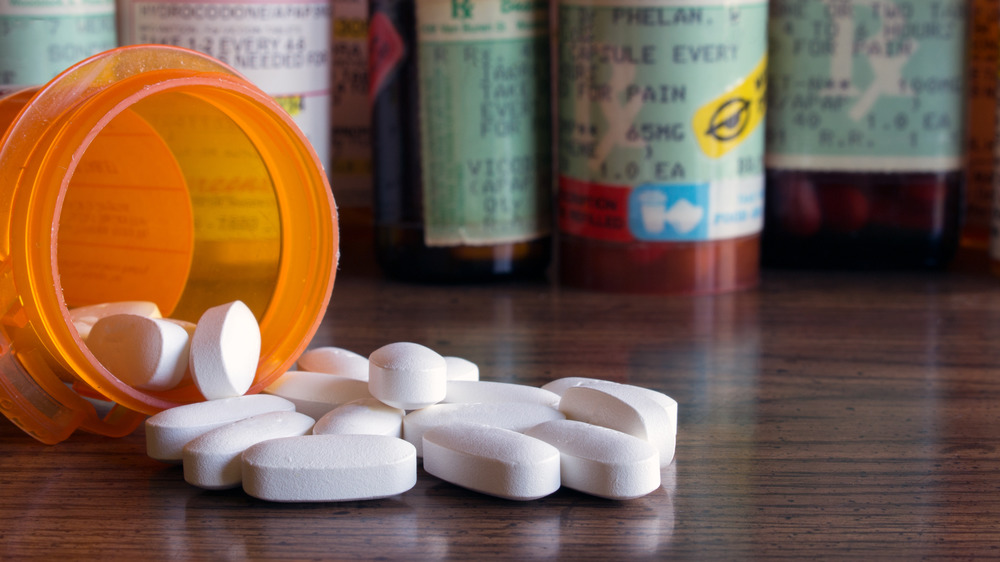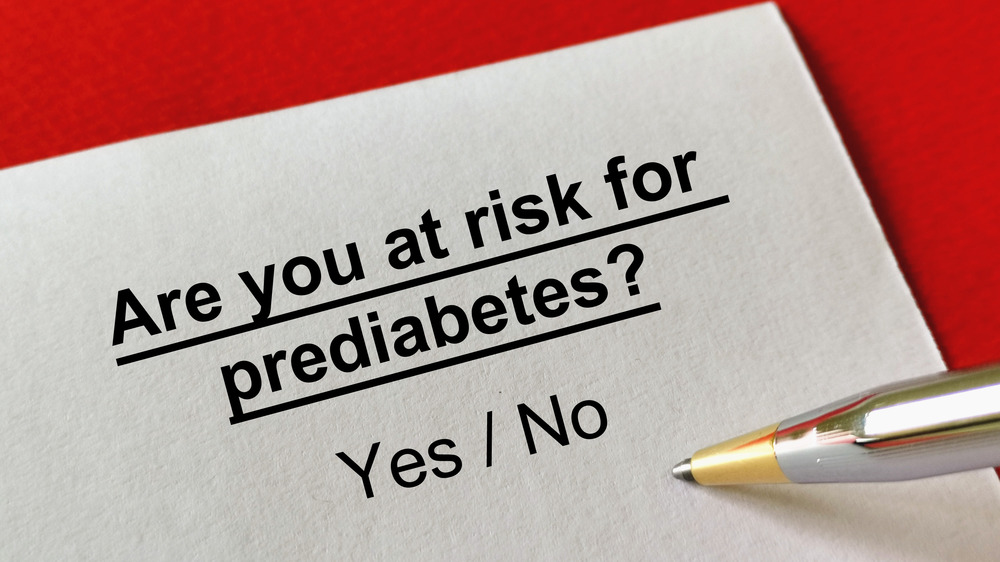The Questions Your Doctor Wishes You'd Ask
Asking your doctor questions can seem like an intimidating experience at first. According to statistics, the average primary care doctor sees between 11 and 20 patients per day, and many of those appointments are pretty quick. The vast majority of these doctors spend anywhere from nine to 24 minutes with each patient. While you're likely not your doctor's only patient, that doesn't mean you should try to rush through your visit. If you do, you might not be taking full advantage of what your doctor has to offer.
If you're on the lower end of that 9–24 minute range, why not get as much value as possible out of each trip to the doctor by taking the time at the end of each appointment to ask questions? As it turns out, there are so many questions that doctors wish their patients would ask them. These professionals spend years in medical school learning the ins and outs of the human body and how to care for it, and it's a shame that most of us don't mine them for that knowledge on the regular. Here are some questions you should consider asking your doctor at your next appointment.
Which preventive care tests should I be getting?
If you have breasts, do you know when you're supposed to start getting mammograms to check for lumps? If you have testicles, do you know when and whether you should start screening for testicular cancer? If the answer is no, consider asking your doctor about these things during your next visit.
"I would like to hear more patients ask about preventive care," Lisa Ravindra, an assistant professor in the department of internal medicine and a primary care physician at Rush University Medical Center in Chicago, told U.S. News & World Report. "That means discussing current guidelines on age-appropriate tests and vaccines."
You can find guidelines for all kinds of preventive measures, screenings, and tests on the U.S. Preventive Services Task Force's website. Honestly, though, there's a lot of information to sift through, and much of the information might not be relevant to you personally. Instead of spending hours combing through their various recommendations, why not ask your doctor to tell you about preventive care tests and guidelines that you should follow? They'll be happy to — it's their job to know that stuff!
How does my family history affect my health risks?
If you're lucky, you inherited plenty of good things from you parents. Maybe you have your dad's sense of humor, or your mother's smarts. Maybe one or both of your parents passed down good genes that prevented you from getting sick all the time as a kid.
Unfortunately, you're bound to have also inherited some not so awesome things from your parents and other blood relatives. If someone in your family has had cancer or lives with a chronic disease, for example, that might mean you're at risk for those things. It doesn't mean that you'll necessarily end up having any of these medical issues, but family medical history is something that your doctor will look to in order to provide you with the best possible care (via Medline Plus).
Make sure to tell your doctor everything you know about your family medical history. Then, ask them how this history may or may not affect you, and what you can do to stay as healthy as possible in the face of potentially increased risk of certain health conditions. According to telemedicine company Lumeca, your doctor wishes you'd ask this question because your family history can "help inform your health plan."
Why am I taking this medication?
It's safe to say that we've all gotten a prescription from our doctor at some point — in fact, according to a survey by the AARP, adults 45 and over take an average of four prescription medications daily. That's a lot of medication!
The scary thing is, most doctors don't actually explain to patients what exactly their prescriptions are, how they work, and why they're necessary. A 2011 study published in Health Communication found that in almost all visits in which a doctor prescribed a patient a new medication, he or she addressed only one or two of the four dimensions of medical recommendations — seriousness of the medical issue, effectiveness of treatment, how likely the average patient is to properly take the medication, and the potential limitations of the treatment.
That's not good, especially because all medications have limitations, and often there are things a patient can do to make medications more effective. When your doctor prescribes you something new, ask why, and if there's anything else you should be aware of.
What are the side effects of this medication?
Prescription medications are an important part of good healthcare, but that doesn't mean they come without side effects. Most are worth taking because of the benefits — that's why doctors prescribe them — but it's still important that you as a patient know about possible reactions before you start taking a new medication.
According to a 2011 study published in Health Communication that looked at 187 transcripts of recorded outpatient visits during which the doctor prescribed the patient a new medication, many doctors don't even mention potential side effects when prescribing something new.
To make sure you're informed about side effects and medication interactions — that is, what happens when you take a medication while also taking another medication, food, or supplement — ask you doctor about them, and how big the risks are. In a Harvard Health Blog article, physician Carolyn A. Bernstein explained that all medications have potential side effects, which can range from fatigue and headaches to weight gain unusually colored urine. Knowing what to expect will help avoid undue concern. And, as Bernstein suggested, "Make sure you have all the answers about your medication, including how long you're expected to try it before an adjustment or change."
Am I at risk for prediabetes?
It used to be that your doctor told you whether or not you had a certain condition, like diabetes or high blood pressure. These days, our understanding of these conditions is a bit more sophisticated, and doctors can also warn you when you're headed towards one of these conditions but don't actually have them yet. For example, you may have heard of "prediabetes." Such terms can be confusing, and it's important that your doctor explain to you what they mean and what you should do.
According to the Mayo Clinic, prediabetes is defined as having higher than normal blood sugar, but not so high that it can be considered type 2 diabetes. The U.S. Department of Health and Human Services recommends asking your doctor several questions about the condition including, "Am I at risk for prediabetes or type 2 diabetes?" and "What are the warning signs and symptoms of type 2 diabetes?"
If your doctor informs you that you have, or are at risk for, prediabetes, don't panic. Instead, ask them what that means for your life, and if there's anything you should start doing, keep doing, or stop doing to prevent the onset of type 2 diabetes in the future.
Which health websites can I trust?
Look, anyone with a keyboard and an internet connection can start a website — or an Instagram account — and fill it with health advice. That doesn't mean that said health advice is trustworthy. Maybe you've made a habit of Googling your symptoms or using symptom checkers. However, you shouldn't put all your stock in algorithms. In fact, after evaluating 23 symptom checkers, a study in The BMJ found that they only "provided the correct diagnosis first in 34% ... of standardized patient evaluations."
However, this doesn't mean it's impossible to find high-quality health advice online. Ask your doctor to point you in the right direction. "I get many comments about what patients read on the internet," Michael Langan, an internal medicine physician at Ohio State University Wexner Medical Center, told U.S. News & World Report. "Unfortunately, I never get the question as to whether the resources they used are even a trustworthy source of information. Information is important, but accurate and reliable information is far more important."
Can you recommend a nutritionist?
Doctors know a lot about the human body, including how to diagnose medical conditions and which treatments to prescribe or recommend. However, they aren't the official experts when it comes to nutrition. That designation goes to another health professional: the registered dietitian, or registered dietitian nutritionist (RD or RDN). These are people who have advanced degrees in nutrition and at least 1,000 hours of supervised nutrition practice under their belts, the Academy of Nutrition and Dietetics explained.
However, consider bringing this topic up with your doctor. "Because doctors are very receptive to this conversation, just say, 'I'd like to make sure that I'm meeting my dietary recommendations. Do you have any advice or information that I can look at, or somebody who I can talk to to help make sure my diet is on track?'" Maya Vadiveloo, assistant professor of nutrition and food sciences at the University of Rhode Island, suggested to Today.
If you've been diagnosed with certain health conditions, your insurance may cover visits with an RDN, and evidence suggests that meeting with an RDN improves health outcomes and condition management. Anyone can meet with an RDN, and your doctor may even have a nutritionist in mind to recommend.
How does alcohol affect my health?
Alcohol consumption is extremely common among American adults, but that doesn't mean it's not something you should tell your doctor about. In a 2014 study published in BMC Public Health, researchers confirmed that patients almost always under-report the amount of alcohol they actually drink when talking to their doctors. In fact, self-reported alcohol consumption makes up for only about 40 to 60 percent of total alcohol sold — which means people either under-report or underestimate the amount they drink by about half.
The problem: Alcohol has health consequences. In the Scientific Report of the 2020 Dietary Guidelines Advisory Committee, a panel experts looked at the evidence and found that drinking any amount of alcohol is worse for your health than drinking none at all. They recommended that the current guidelines become stricter, and that both men and women should drink no more than one drink a day to minimize health risks. Until then, the recommendation had been no more than one drink per day for women and no more than two drinks per day for men. Be honest with your doctor about how much you drink, and ask how it affects your health.
How much experience do you have treating this condition?
It's easy to think of doctors as super humans who have all the answers, but that isn't the case. As with anything, it takes a doctor time to get familiar with a certain condition or treatment, and experience matters.
While there's no need to question your doctor on their experience with every little thing, it's worth asking about their understanding if you've been diagnosed with a rare or complex condition that most doctors probably don't have much experience with. "Experience is critical in managing complex cancer cases," Jack Jacoub, an oncologist and medical director at MemorialCare Cancer Institute at Orange Coast Memorial Medical Center in California, told U.S. News & World Report.
A rare or complex diagnoses can be stressful, so it's important to have a doctor that you trust to guide you through the process. Ask yours how familiar they are with your condition and how many patients with the condition they've treated. If your doc doesn't have much experience, they'll likely let you know and recommend another doctor who does.
Can I try a different medication?
Medications and other treatments are meant to improve your health, and generally they do. However, not everything works for everybody. "Taking medication prescribed for you can help you feel better or prevent health problems down the road (or both)," physician Carolyn A. Bernstein wrote in an article for Harvard Health Blog. "But if a drug isn't working for you or you are concerned about new symptoms or side effects, speak up. Your doctor needs to know in order to change the drug or dose, or consider other options." Chances are, there are other options out there, but your doctor won't know to switch up your medication unless you let them know that it isn't working.
Bernstein recommends keeping a journal when you start a new medication to keep track of any side effects, major or minor, that might come up. If you document when they happen, it's easier to know whether or not your new medication might be the cause.
Why do I need this test?
If your doctor is running a test or recommending a screening, there's a reason. Maybe it's because of your age or sex, maybe it's because your family history puts you at risk, or maybe it's because your doctor suspects a medical issue. No matter what the reason, it's something you should know.
Here's what the National Institutes of Health recommends: "Before having a medical test, ask your doctor to explain why it is important, what it will show, and what it will cost." If you don't ask these questions, your doctor might assume it's because you already know the answer. Asking will help make sure you're prepared for the test — some might require fasting beforehand — and will eliminate any surprises. Knowing why you're getting tested will also help you understand your own health, and will make it easier to figure out if you need to make any other changes to your lifestyle.
When you get the results of your test, be sure to ask your doctor about those, too. Numbers on a page don't mean anything without context, and it's important to understand what each one indicates.
Should I try this diet?
If you've ever read about a diet in a book or a magazine, you've probably noticed that each one has a disclaimer. "Consult with your doctor before making big changes to your diet," or something to that effect. That's true for many reasons.
First of all, your doctor can assess whether a weight loss plan is safe. "Really rapid weight loss is mainly water or muscle and not a lot of fat," Melina Jampolis, a physician nutrition specialist, told WebMD. Your doctor can recommend a plan that helps with slow, sustainable weight loss as opposed to a fad or crash diet.
Your doctor can also help you manage your expectations about a diet, and let you know how even small changes in weight could affect you. ""If you learn that losing five percent to ten percent of your weight would enable you to get off your blood pressure medication, that's extremely motivating," Jampolis explained. On the other hand, if your goal is just to lose as much weight as possible without understanding the benefits, you might be discouraged when that doesn't happen.
What vitamins and supplements should I take or avoid?
You don't need a prescription to buy vitamins or supplements, which might make it seem like no big deal to start taking them. But actually, that's not the case. Certain supplements can interfere with medications and might have negative side effects for some people. Even things like iron, vitamin E, or vitamin A supplements could do more harm than good for some people, and some vitamins will cancel out the effects of certain medications (via The Healthy).
What's more, supplements aren't regulated by the Food and Drug Administration, so some aren't high quality. "Supplements may carry harmful risks such as inaccurate dosing information and contaminated ingredients," registered dietitian nutritionist Wendy Kaplan told The Healthy. Your doctor will recommend supplements that have been tested and approved by a trusted organization.
Ultimately, asking your doctor whether or not you need to take certain supplements will save you from spending unnecessary money, and could prevent you from taking something that might actually cause harm. Remember, it's your doctor's job to make these kinds of recommendations.
Can we talk about end-of-life care?
Nobody wants to talk about what will happen when it's their time, but having that end-of-life care conversation in advance will make things much easier for you, your doctors, and your loved ones in the long run. Unfortunately, not many people do talk to their doctors about it.
"The result is that many people receive treatment they may not have wanted and die in ways and places that they would not have chosen," wrote the Association of American Medical Colleges (AAMC). It doesn't have to be this way, though.
"I and many people I know are more afraid of being in pain than of dying," geriatric psychologist Benjamin Bensadon told AAMC. "Doctors don't have to be so uncomfortable talking about death." Instead, he recommends that doctors and patients have an open dialogue about what kind of treatments you do and don't want when you happen to be near death. As a patient, it's your right to have these conversations with your doctor whenever you want. And while it might be uncomfortable, it's best to talk about this stuff when you're still young and healthy.














